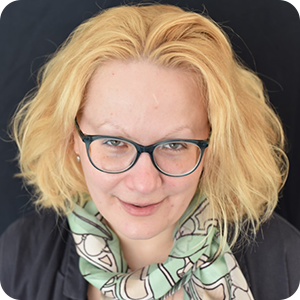Freedom plays a crucial role in achieving progress and eradicating poverty. Despite considerable efforts to strengthen human freedom, according to the recently published Human Freedom Index 2022, over 94% of the world’s population live in jurisdictions that witnessed a decrease in human freedom in 2020 compared to 2019. Thus, the population of the Syrian Arab Republic lives in the least free environment. At the same time, Switzerland is at the top of the list of countries with the highest level of freedom. To explain the causes, consequences, and solutions for achieving greater human freedom, we approached several international experts. Check out their opinions below.
Key Takeaways:
- The Human Freedom Index evaluates the state of human freedom in the world including personal, civil, and economic freedom.
- The endemic spread of disinformation, hate speech and the manipulation of foreign information online continue to erode the freedom of expression as a value in public consciousness and there is no effective recipe against this erosion so far.
- Societies as a whole are losing confidence and trust in human rights and democratic values – this is the most dangerous of all consequences, according to experts.
- According to experts, the continuing decline of human freedoms leads to decreased economic growth, increased poverty, diminished political and civil rights, greater corruption, and weakened democratic institutions.
DevelopmentAid: What are the main causes of the continuing decline in human freedom, despite numerous efforts to increase its level?

“The main causes for the continuing decline in human freedom despite the numerous efforts to increase it include the rise of authoritarianism, government surveillance, and restrictions on civil liberties. Authoritarian governments are increasingly limiting political opposition and media freedom, and their use of surveillance technologies is undermining individual privacy. Additionally, economic insecurity and inequality are eroding social and economic rights, leading to a decline in human freedom.

“The key reason is an overall decline in value-based governance/politics and an overreliance on the so-called ‘realpolitik’ which allowed authoritarian regimes worldwide to thrive and effectively corrupt and capture democratic governments. Another, perhaps more philosophical, reason is the domination of strategic relativism in our thinking where we pretend as if there is no good and bad, benign and evil, truth and false anymore but everything is ‘shades of grey’. As a result, authoritarian regimes have been allowed to ‘fake’ democracy for too long. And, even in the face of the biggest war in Europe since 1945, politicians of European countries as well as international intergovernmental organizations cannot gather enough courage to offer an adequately firm response. On another note, many international human rights NGOs are either in a senseless pursuit of ‘neutrality and impartiality’ or engage in something which I would call ‘human rights populism’ e.g., running around with the same empty messages without considering local contexts. The endemic spread of disinformation, hate speech and foreign information manipulation online continue to erode freedom of expression as a value in public consciousness and there is no effective recipe against this erosion so far. Moreover, there is widespread reluctance to even start discussing possible solutions beyond the usual helpless mantra of media literacy will save us all.”

“Radical times radicalize people. 9/11 sent the USA on a profound continuing democratic slide, starting with its unwarranted 2003 invasion of Iraq, which weakened democratic rule and standards at home, giving ready excuses to every aspiring autocrat. The U.S. could no longer claim the mantle of commitment to democratic freedoms. Others followed suit in the Democratic Recession we now dwell in, in the twentieth consecutive year of measured democratic decline.”

“Despite constitutional safeguarding of the right to freedom and the freedom of expression as fundamental human rights, Nepal has faced significant challenges in maintaining and promoting human freedom in recent years, with political instability, social unrest, and weak rule of law contributing to the decline. The COVID-19 pandemic has further exacerbated the situation, with restrictions on freedom of movement, assembly, and expression. The decline in human freedom has had a disproportionate impact on women and marginalized communities in Nepal. Women face systemic discrimination and are often excluded from decision-making processes, limiting their freedom and autonomy. The pandemic has further exacerbated these inequalities, with women experiencing a disproportionate burden of care work, economic insecurity, and gender-based violence. Similarly, marginalized and vulnerable communities, such as Dalits, indigenous peoples, gender and sexual monitories, and persons with disabilities, have been disproportionately affected by the decline in human freedom. They often lack access to basic services, such as health care and education, and are at increased risk of human rights abuses, including forced labor, exploitation, and discrimination.”
DevelopmentAid: What are the main consequences of the decline in freedom?

“The consequences of the decline in human freedom are numerous and severe. They include economic decline, increased poverty, diminished political and civil rights, greater corruption, and weakened democratic institutions. The decline in human freedom also contributes to a rise in authoritarianism and undermines the rule of law.”

“Societies as a whole are losing confidence and trust in human rights and democratic values – this is the most dangerous of all consequences. Authoritarian leaders could be successfully fought and defeated but if people do not believe in the values of freedom and democracy anymore, this will be too hard to reverse. The culture of pessimism and passivity has been spreading even in democratic societies, thus paralysing active action for social and political changes.”

“Those who do not share the values of human freedom outfox, outwit, and outlast those who promote freedom. Autocrats command financial and economic resources, dominate electronic communications, reap illicit domestic wealth, gain financial windfalls delivered by the plumes of hydrocarbon prices driven higher by the fumes of military and political conflict in key oil-producing countries (like Iraq, Nigeria, Libya, and Russia). Military conflict and national destabilization (Syria and Lebanon, as examples) do not result in democratic progress.”
DevelopmentAid: What should the international community do in this regard?

“To address the decline in human freedom, the international community should prioritize the promotion and protection of human rights and freedoms. This includes supporting civil society organizations advocating for human rights, promoting independent media, and reducing economic inequality. Additionally, international organizations should hold governments accountable for violating human rights, provide financial and technical assistance to support these efforts, and provide education and training on human rights and freedoms.”

“First and foremost, gather enough courage to clearly state what is right and what is wrong. Stop fearing taking a firm stance. Revive our democratic values by demonstrating the ultimate resolve to fight for them. And then support international development projects based on these values and not on the mere technical outputs. Acknowledge the historical moment and process we have been living through.”

“Democracy and politics are serious endeavors. Countries must recommit to democratic governance at home. Listen to public demand for rights. The United States should lead by dropping extremism and extreme partisanship, best accomplished through public demand: the public must mobilize to defeat extremism at the ballot and partisanship through its choices, public attention, behaviours and attitudes. Americans must recommit to civic values and actively build trust in the democratic institutions of society and government. The broad public must decide, “Don’t take the bait” of culture wars, detox from political extremism, turn down the TV volume, apply critical thinking, get up and get active. With strong democracies at home, democratic countries can band together to demonstrate the prosperity, healthy, educated, high quality of life benefits of democratic rule via established international fora such as the Community of Democracies. A commitment to good governance, democratic practices and using political economy lenses in all international development programs will demonstrate commitment and goodwill to the citizens of partner countries. Armed conflict has no good outcomes. Countries must back off from posturing for armed conflict whenever possible. Do not lazily enter wars by choice. Do the hard work to stave off war. Far more than protests march alone, citizens must practice nonviolent action (NVA) to establish democratic processes. NVA requires careful organizing to build unbreakable unity, marshaling strategic planning that aligns and fosters effective action, and the continual practice of unshakeable nonviolent discipline. With attention spans in the gerbil wheel of the news cycle, not enough people have developed the will, skill, and focus to make this happen.”

“Against this backdrop, development agencies have a crucial role to play in addressing these challenges by providing support for strengthening systems, mechanisms, and normative frameworks, institutional and policy reforms, the promotion of human rights, the rule of law, democratic and inclusive governance, and investment in social and economic development programs that promote freedom and dignity for all. This can include providing technical and financial support to civil society organizations and other stakeholders working to protect human rights, particularly for marginalized and vulnerable communities. Development agencies can also advocate for policy changes at the national and international levels to promote greater respect for human freedom and rights. To address the decline in human freedom, it is crucial to prioritize the protection and promotion of the rights of women and marginalized communities. This can include targeted policies and programs that address their specific needs and challenges, such as promoting greater access to health care, education, and economic opportunities. It is essential to work towards creating a world where all individuals are free to live in dignity and pursue their aspirations, regardless of their background or circumstances.”
See also: International Press Freedom Day: challenges, prospects and solutions | Experts’ Opinions
Everyone can make a change for the better by becoming involved in jobs and opportunities that could enable societies to thrive and increase the human freedom index. DevelopmentAid.org is currently the biggest job board in the global aid sector, providing access to 7,500+ jobs. To be able to access all of these and choose those that best suit your own competencies, DevelopmentAid offers Individual Membership Plans which can be accessed here.

